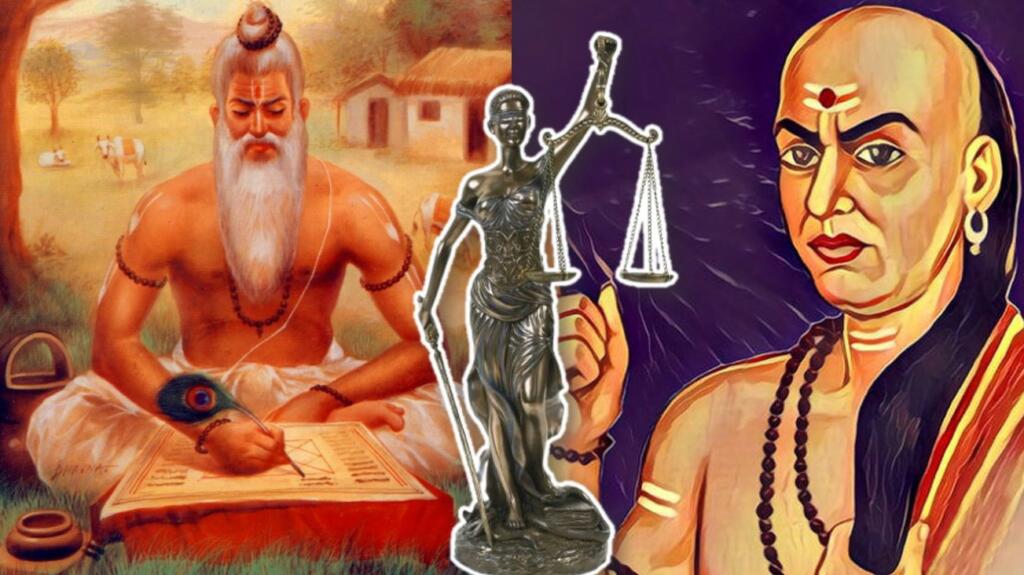The last decade or so has witnessed rising appeals by prominent members of the judiciary to bring back our ancient legal system. The disconnect between the west-based system and the Indian masses is forcing legal experts to look into the nitty and gritty of the system championed by Acharya Chanakya and Maharshi Manu.
Justice Abdul Nazeer bats for the Indianization of our legal system
Justice S Abdul Nazeer, a well-decorated judge of honourable Supreme Court has now contributed his thoughts towards replacing modern jurisprudence with India’s ancient jurisprudence. He has asked the legal fraternity to get rid of the colonial psyche by including the ancient Indian legal system as a compulsory subject for students studying law.
Shri Nazeer was speaking on ‘Decolonisation of the Indian Legal System’ at the 16th National Council Meeting of the Akhil Bharatiya Adhivakta Parishad. He pointed out some key differences between the ancient Indian legal system and modern western jurisprudence.
West required citizens to surrender their rights while in India, Justice is inherent for a citizen
According to the honourable judge, when Western Jurisprudence was introduced in India, Justice was available to citizens only when they surrendered their rights to the ruling class. For practical purposes, this assertion translated to a system in which citizens could not ask for justice until they cow-tow to rulers.
Read more: No more ‘My Lord’: Why Indian Judicial system should do away with the medieval era colonial practice
In the ancient Indian legal system, an individual could ask for justice against anything. Our system required kings to bend before the rule of law and justice could be demanded against anyone, including the ruling class, both in theory as well as practice.
West is about rights, India is more about rights based on fulfilling responsibilities
Justice Nazeer also pointed out the difference between balancing rights and responsibilities in both legal systems.
Honourable Judge informed that in the ancient Indian legal system rights did not exist in unison. It actually existed as a corollary of responsibility. Simply put, the more one would take up responsibility, the more they would be gifted with rights. The right was a means to fulfil a responsibility.
Things are different in western Jurisprudence. There is very little emphasis on responsibility in the western legal system. Rights are primary and do not require a citizen to play his/her responsibility in order to get their rights. According to Shri Nazeer, this has an important effect on social institutions like marriage.
Elaborating his point, the honourable judge said, “Under Indian jurisprudence, marriage was a duty, a job to be performed as one of the many social obligations, which everyone had to perform. But the preoccupation of western jurisprudence with the rights has resulted in marriage being looked upon as an alliance from which each partner tries to get as much as he or she can. The high rate of divorce is the result of neglecting the duty aspect of marriage”
Foreigners copy our ancient codes, but we don’t
Justice Nazeer also pointed out that foreigners are copying our ancient legal system, but we are not able to fully extract our own treasure. He illustrated it with the fact that the Soviet Criminal Code adopted Maharshi Manu’s prescription of publicly censuring as a punishment of crime, while the Indian Penal Code did not adopt it.
Censure is a formal, public, group condemnation of an individual, often a group member, whose actions run counter to the group’s acceptable standards for individual behaviour.
Read more: Nirbhaya’s convicts strategically exploit loophole in legal system as mother watches helplessly
Neglecting our ancient system is detrimental to our interests
The honourable judge also opined that neglecting our treasure will be detrimental to our masses. Elaborating his reasons for this assertion, he said, “Great lawyers and judges are not born but are made by proper education and great legal traditions as per Manu, Kautilya, Katyayana, Brihaspati, Narada, Yagyavalkya and other legal giants of ancient India. The continued neglect of their great knowledge and adherence to colonial legal system is detrimental to the goals of our Constitution and against our national interest”
Read more: The President and the PM’s clear advice to top judges is a sign of things to come in the judiciary
The disconnect between the Indian population and our current legal system
India’s current system is actually based on the master-slave relationship between Britishers and Indians. Britishers imposed their system in order to legitimize their exploitation of Indians. They set up the court system in such a manner, that in terms of ground reality, it becomes next to impossible for an affected individual to seek justice. Nothing explains establishing a single Court with Supreme power (Supreme Court of India) at one single location in geographically diverse India.
Also read: Yes, the 3 farm laws are going. But a 100 more are going too amid big police build-up
After 70-years of independence, we are finally witnessing a surge in demand for Indianizing our legal system. The prevalent system has become punishing for masses and crores of pending cases are proof of that. Justice Nazeer’s opinion and his suggestions should now become a bedrock to build upon our own system which could serve us better.
